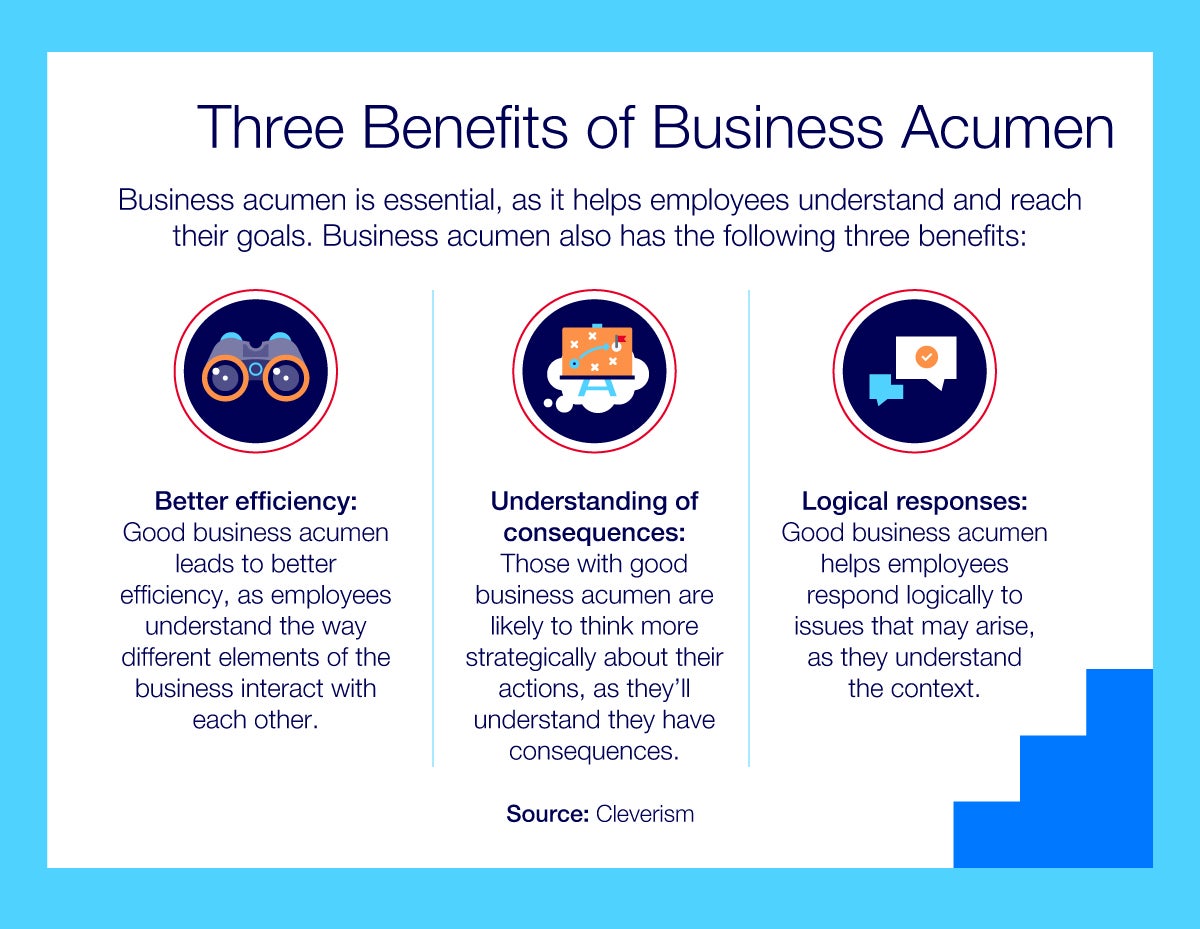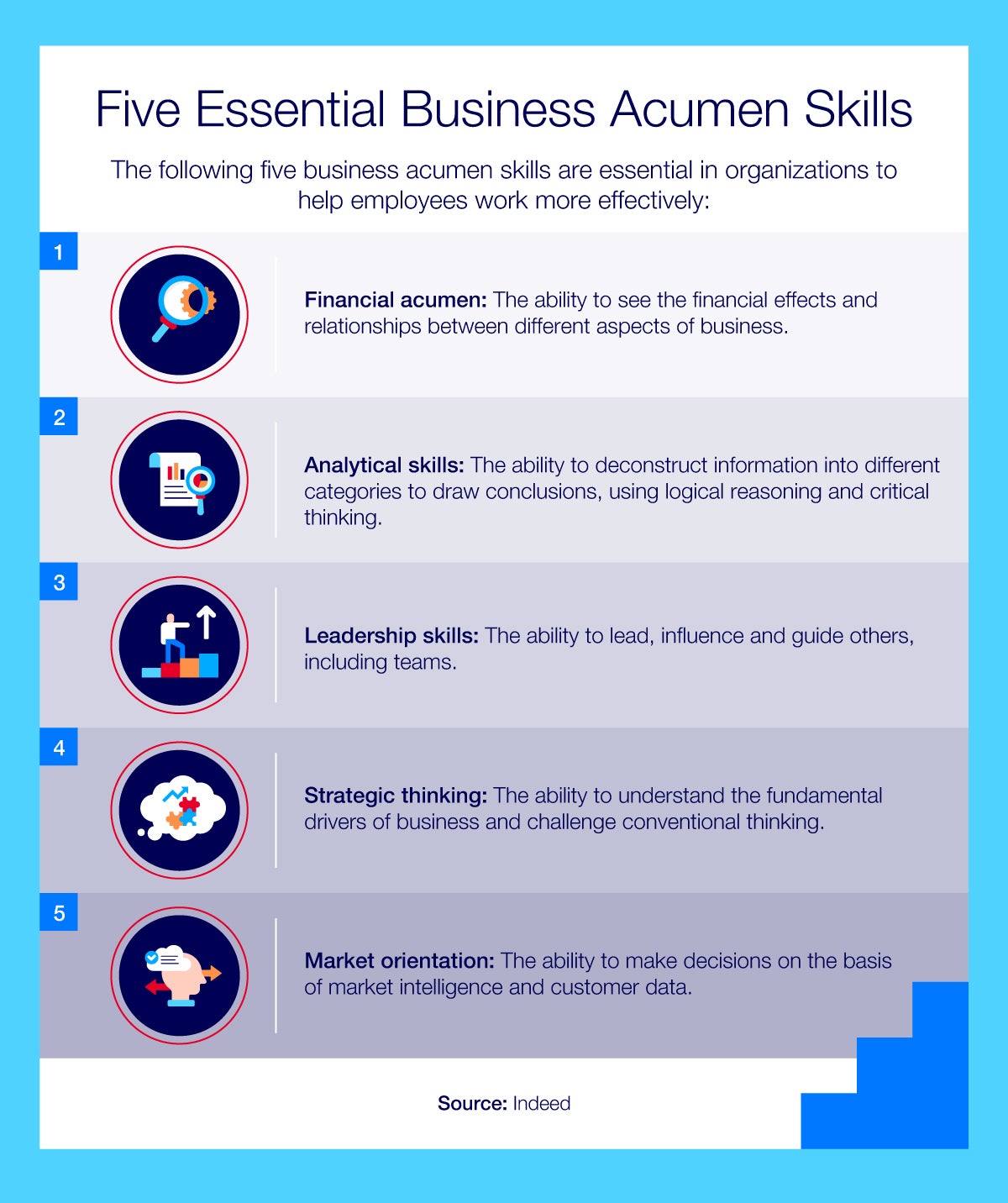10 business acumen skills for millennials and Gen Zers looking to boost their career opportunities

Business nowadays certainly isn’t what it used to be. From the fact that many well-known companies aren’t actually profitable, to the fact that the world’s largest providers of transport or accommodation don’t actually own any transport or accommodation, what’s clear is that owning, managing, and working in business is a challenging, fast-changing experience. What’s also clear is that business acumen, or the ability to understand the drivers of a successful business, is critical.
However, all too often, this vital skill is missing in employees. Research shows that up to 80% of all employees lack basic business literacy. This skill is particularly important in millennials and Gen Zer's, given how competitive the job market is becoming.
With artificial intelligence and data analytics reshaping decision-making across all sectors, strong business acumen is no longer optional – it’s essential. If you combine data fluency with business thinking, you’ll set yourself apart in the age of Ai. This is why future professionals need to understand not just traditional business principles but also Ai skills for business analyst roles, where combining strategy, technology, and communication drive competitive advantage.
For all millennials and Gen Zer's looking to boost their career opportunities through learning critical business acumen skills, this article will explore these skills in detail. It’ll begin by defining the concept of business acumen, before detailing its benefits. It will then list and explain 10 essential business acumen skills, as well as how to understand and improve upon these skills.
What are business acumen skills?
The term “business acumen” is a concept that may seem simple but can be difficult to define. A high-level definition is that it’s the ability to see the “big picture” behind a business and understand how the different parts of the business should work together to achieve the business’s goals.
Acquiring business acumen isn’t as simple as learning about how a business works. Business acumen involves not only understanding how an organisation works, but also understanding why each department exists and how they’re connected. In addition to that, business acumen involves understanding what drives profitability, as well as what risks a business faces. Market knowledge is also important, as is the confidence to make the best decisions for the business.
In a data-led world, this also means knowing how to align analytics, data insights and even Ai models to real business priorities – a growing skillset explored in RMIT Online’s Master of Business Analytics and Ai Strategy. Here, students learn how Ai in business strategy supports smarter forecasting, resource planning, and customer engagement.
Business acumen is critical for millennials and Gen Zer's in an increasingly crowded graduate and junior job market. Since one in four unemployed Australians have university degrees, to stand out, graduates need to have not only knowledge in their fields but also business acumen to succeed in their roles.
Business acumen is important to millennials and Gen Zer's for many other reasons, including the fact that it helps them better understand career opportunities; make better decisions; sell their ideas; and take more sensible, calculated risks.
Benefits of strong business acumen
Possessing strong business acumen skills has many benefits for millennials and Gen Zer's:
- Better efficiency: Understanding how roles and functions connect leads to smarter decision-making and streamlined operations.
- Better trade-off decisions: Those with business acumen understand competing priorities, like cost vs quality, or short-term vs long-term value.
- Better choices: The most successful leaders can evaluate data, trends, and consequences before taking action.
In roles where data and Ai play an increasing part, business acumen becomes the “translation layer” between the technical and strategic sides of an organisation. This is also where Ai and business strategy overlap – using machine learning and predictive analytics to strengthen core decision-making while keeping sight of long-term goals.

Three essential questions of business acumen
In any situation, having strong business acumen skills essentially involves asking the following three essential questions:
1. How does a company make money?
Businesses can involve complex systems, and an essential part of business acumen is understanding how companies, in general, make money. This includes understanding a company’s strategy, their financial metrics, their market, how they market themselves, their product, and their future plans.
2. How does my company make money?
Equally important to understanding how any company makes money is understanding how the particular company you’re working for makes money. Many companies operate differently; some may be nonprofits or not making money but have sound investor funding.
3. Who are my business customers?
The final question that needs to be asked is who the business’s customers are. Without customers or clients, businesses wouldn’t exist, so strong business acumen involves understanding a business’s customers, including what they want and need and how to provide the best experience for them.
Here again, Ai in business strategy can help answer these questions at scale – by analysing customer behaviour, segmenting audiences, and identifying growth opportunities that aren’t obvious from surface-level data.
10 essential business acumen skills
To have strong business acumen, millennials, and Gen Zer's need to have 10 essential skills.
Here are the 10 essential business acumen skills they need, as well as how to recognise and improve upon these skills.
1. Financial acumen
The term “financial acumen” refers to the ability to evaluate the impact of business decisions on a business’s financial statements, as well as its short- and long-term financial health overall. An organisation’s financial health is vital to its ongoing operation, because if it’s struggling financially for a long time, it can’t continue. Commercially, financial health is often measured in terms of revenue and profit; however, different types of companies measure their health in different ways.
Those with strong financial acumen will know they have it, as they’ll always consider the financial impact of their actions. They’ll understand key financial reports, for example, profit and loss (P&L) reports, and understand how different inputs affect these reports, as well as the business’s overall success.
Financial acumen can be improved in many ways. A great way to start is to become familiar with basic financial reports and key metrics. Beyond this, always create budgets for new projects or proposals, and try to always consider the financial consequences of decisions you make on the business.
2. Analytical skills
Businesses are complex environments, often with a lot of information to understand and process. For this reason, an essential business acumen skill is the ability to analyse information, problem-solve and make decisions, otherwise known as analytical skills. Today’s analysts need more than raw number-crunching; they need Ai skills for business analyst roles, like the ability to interpret outputs from predictive models and connect them to business objectives.
People who possess strong analytical skills can help solve essential business problems, meaning they’ll be more efficient and effective in their daily jobs. Beyond this, they can help their companies become more productive overall by removing roadblocks.
Those with strong analytical skills will know they possess them, as they’ll always consider the big picture of any issues they face and will try to work through them, while thinking about the consequences for others around them.
Analytical skills are particularly hard to improve on. However, experts recommend reading more, building math skills, learning something new, being observant, and exercising.
3. Leadership skills
Leadership skills are a key area of strong business acumen. Broadly, leadership skills involve the ability to oversee processes, guide initiatives, and lead and influence others to take action, even if those people aren’t direct employees.
Leadership is important on both an individual and a managerial level. Those with strong leadership skills are admired in their organisations. They positively influence others and make decisions that people respect. They have successful careers, are positive, and are knowledgeable about many areas of business.
Leadership skills can be improved in many ways. These ways include listening, taking initiative, constantly learning, and doing more practical things, such as seeking a mentor.
4. Strategic thinking
Another key business acumen skill is thinking strategically. The term “strategic thinking” refers to the ability to understand the fundamental drivers of business, and then challenge more conventional views, to be more innovative. To be strategic is to embrace alternatives, challenge the status quo, and aim to overachieve business goals. In the modern landscape, strategy is inseparable from technology. Understanding A and business strategy means recognising how automation, data and algorithms influence competitive advantage.
Those who are strategic are always thinking of what needs to be achieved, and more importantly, how to achieve it. They always want to achieve it in the most effective and efficient way possible and endeavour to influence others to do so.
Strategic thinking can be improved in many ways. Experts recommend always reflecting on what you do before you do it. Beyond this, endeavour to step outside your comfort zone, put yourself in someone else’s shoes, and try to be confident in your decisions.
5. Market orientation
An essential business acumen skill, “market orientation” is a term that refers to a strategic focus on identifying customer needs and incorporating customers’ desires in the product design process.
Those who are market-oriented work in a way that’s the opposite of traditional marketing strategies. Instead of designing the product first, market-oriented people get to know their customers and what their concerns are and how a product can solve them. Market orientation is not about a product that has certain selling points; instead, it’s about solving problems with products or services.
The best way to improve market orientation is to focus on the customer and complete as much market and customer research as possible. Market orientation is also about shifting your views to think about the customer first in every situation. Customers now expect personalisation. This is where Ai in business strategy plays a role, offering tailored recommendations and predicting market shifts in real time.
6. Marketing skills
In today’s competitive business environment, marketing skills are a critical part of business acumen. The term “marketing skills” refers to the ability to promote a product, service or idea and encompasses many different skills – from analysing an organisation’s customer to building a brand to online and offline advertising.
Our digitised modern world calls for a lot of different skills from successful marketers. What is required will depend on the role. Today’s millennials and Gen Zer's will at the very least need to understand how online marketing works and how to reach certain audiences via online channels, even if they’re not in a traditional marketing role.
7. Problem-solving skills
A critical business acumen skill is problem-solving. Problem-solving is the ability to handle difficult or complicated situations and challenges in the workplace. It’s the ability to understand and react to these challenges without too much emotion and to rationally work towards a conclusion.
For those with good problem-solving skills, no challenge is too great. They approach problems with the need to understand them and to get to the bottom of them, as opposed to having fear and uncertainty.
Problem-solving skills can be improved by implementing a logical approach. Experts recommend identifying the problem, defining the problem, examining possible solutions, and then finally acting and reflecting on lessons learnt.
8. The ability to have laser focus
In business, many tasks and people compete for your time. For that reason, the ability to have laser focus is an important business acumen skill.
This ability refers to the mental ability to give all your attention to a task at any given time. Having laser focus is important as it allows tasks to be finished quickly and ensures that you deliver your best work with undivided attention.
Those who can reliably have a laser focus will always finish their work effectively and efficiently and will complete one task before moving to the next.
You can improve your laser focus in many ways. Experts recommend sleeping well, meditating, using natural light, doing cardio, and drinking some coffee.
9. Understanding stakeholder needs
In all organisations, numerous stakeholders need to be considered every time a decision is made. For this reason, understanding stakeholder needs is very important.
Understanding stakeholder needs refers to understanding the views of others in business and designing solutions to problems that take all those needs into consideration.
You can improve your understanding of stakeholder needs by identifying and prioritising stakeholders, understanding what they expect, being proactive about disputes, and always communicating clearly.
10. The ability to understand cause and consequence
The final important business acumen skill that millennials and Gen Zers need to boost their career opportunities is the ability to understand cause and consequence. This is defined as the ability to understand what may cause a certain event or issue and also to understand the consequences of certain decisions or actions.
Those who possess this skill will automatically analyse a problem and look at its root cause. They’ll evaluate different options and think logically about what may happen if they take a certain course of action, as opposed to rushing into a decision.
Improving the ability to understand cause and consequences can be difficult because it’s often a function of experience and of making mistakes and learning from them. However, you can do several practical things, for example, utilise different diagrams that help you map out causes and consequences.
Each of these is deeply valuable in today’s business world, and when enhanced with digital tools, predictive analytics, and ethical Ai frameworks, they become even more powerful.
This is the kind of integrated leadership RMIT Online’s Master of Business Analytics and Ai Strategy is designed to cultivate.

Further resources
For further resources on business acumen skills, take a look at the following:
Business acumen: Summing it all up
In business nowadays, millennials and Gen Zers who want to get ahead in their careers will need strong business acumen skills. Business acumen skills will help them understand the big picture of the business they work in and how the different elements of that business work together. It’ll help them understand their organisations’ goals and work proactively towards those goals in the most efficient and effective way.
Having financial acumen, analytical skills, leadership skills, strategic thinking, market orientation, marketing skills, problem-solving skills, the ability to have a laser focus, an understanding of stakeholder needs, and the ability to understand cause and consequence are all important. The reason these skills are important is that they work together to help millennials and Gen Zers understand the different facets of business and help them understand issues and proactively solve problems.
Business acumen: The skills of the future
With artificial intelligence and technology replacing more and more jobs, millennials and Gen Zers will increasingly need strong business acumen skills – paired with an understanding of how to advocate for, lead and interpret the use of data and Ai in business. The most future-proof professionals will be those who can bridge the gap between Ai and business strategy, ensuring that Ai solutions are applied in ways that deliver tangible commercial value.
Want to level up your career with skills that blend business thinking and data fluency? Discover how RMIT Online’s Master of Business Analytics and Ai Strategy can give you the tools to lead with confidence.
Infographic Sources:
- Cleverism, “How to Develop Strong Business Acumen”
- Indeed “Business Acumen Skills: Definitions and Examples”
Ready to lead with sharper business acumen?
Build your advantage with RMIT Online’s Master of Business Analytics and AI Strategy.
Want to turn insight into confident decisions?
Start with the Graduate Certificate in Business Analytics.
Curious about the numbers behind the strategy?
Get hands-on with data and coding in the Graduate Certificate in Data Science.




